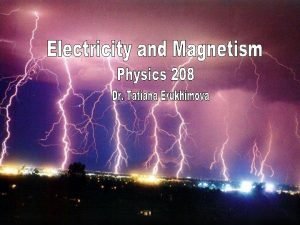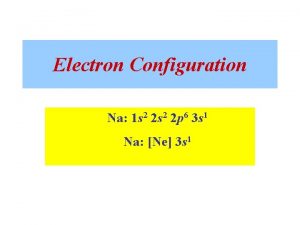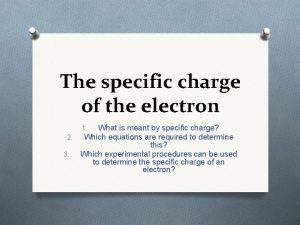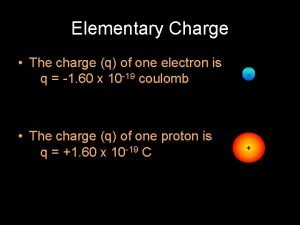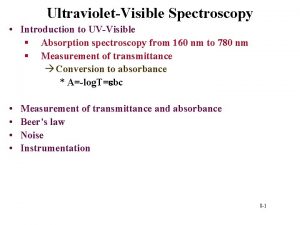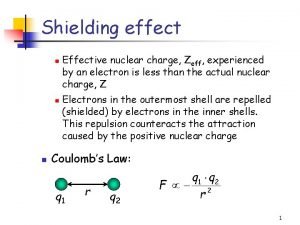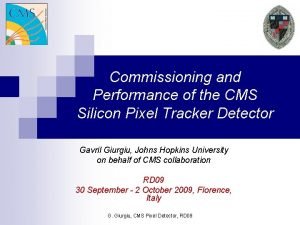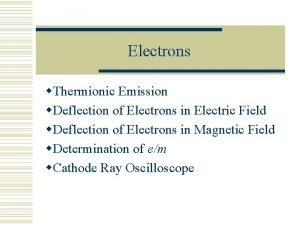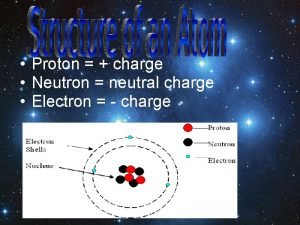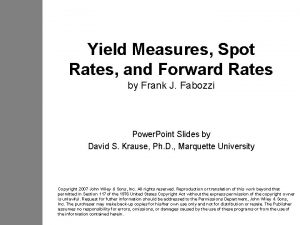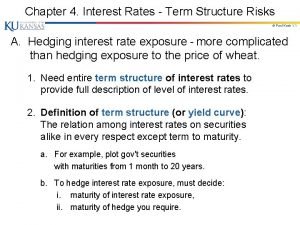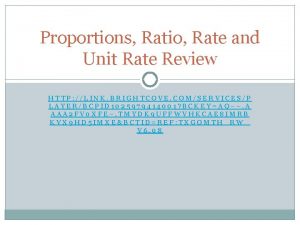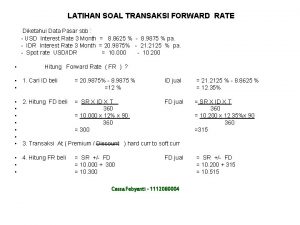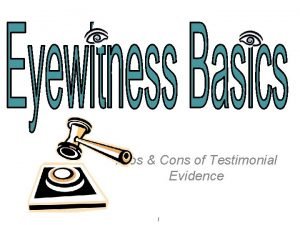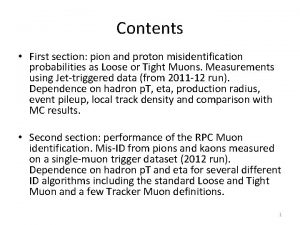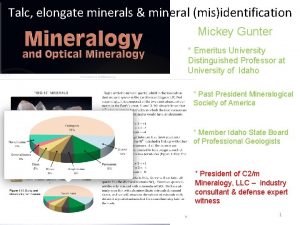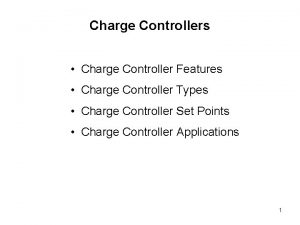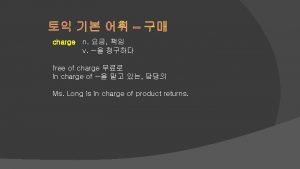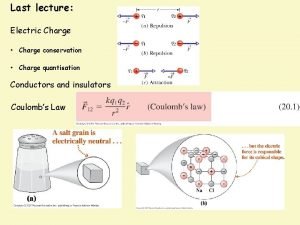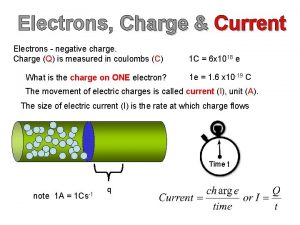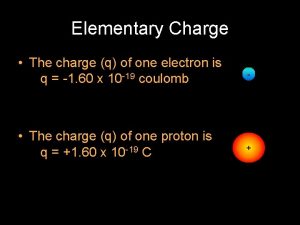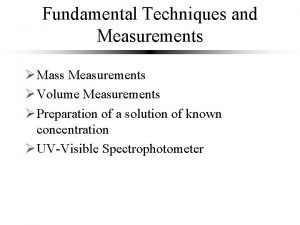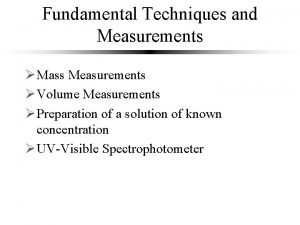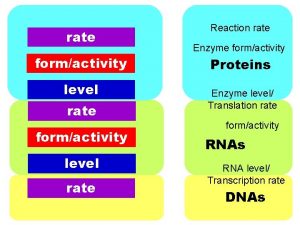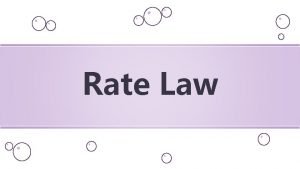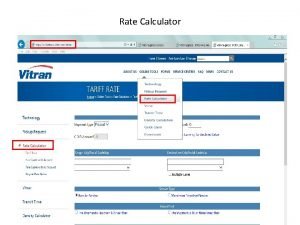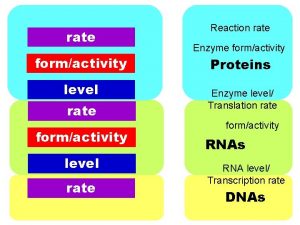Measurements of Electron Charge Misidentification Rate and Electron



















- Slides: 19

Measurements of Electron Charge Mis-identification Rate and Electron Efficiency within SUSY analysis framework 1 Zhichao Zhan SDU Shan Jin IHEP Xueyao Zhang SDU Emmanuel Monnier CPPM FCPPL April 7, 2011 Jinan, China

outline Introduction Tag-and-Probe Method Electron Charge Misidentification Rate Electron Reconstruction Efficiency Conclusion and Prospect 2

Introduction ATLAS SUSY group has published 2 paper 0 lepton channel and 2 lepton channel. Charge mis-identification is the very important part for SUSY 2 same sign lepton final states analysis, which is also an important issue for the physics channel that has lepton charge requirement (SS/OS). Several constituents for charge misidentification Bremsstrahlung; Conversion events; fake electron from jet We try to get a precise charge misidentification rate. 3

Tag-and-probe Method 1. Good Events(pls see the Appendix) 2. 2 good electrons, one tight tag electron; one probe electron. 3. Missing. Et<20 Ge. V 4. dphi(e 1, e 2)>pi*3/4 Data control sample is fitted by Breit Weigner function convoluted with Gaussian distribution function (Line shape); The background is fitted by Chebyshev polynomials. Definition: Working progress 4 4 Line shape

Object and Bakground check: Electron: Author=1||3; pt>20 Ge. V fabs(ηcalo)<2. 47; etcone 20<10 Ge. V; ptcone 30/pt<0. 2 Rubust. Medium; Electron eta Electron pt Working progress Data and MC check Electron phi 5 There is no significant discrepancy between MC and data.

Electron charge mis-ID rate data~34. 3 pb-1 @7 Te. V Robust. Medium Robuster. Tight DATA Left: opposite sign events fitted by line shape 6 right: same sign events fitted by line shape

Robust. Medium Robuster. Tight MC Apply the same fit process to MC Zee sample 7

Electron charge mis-ID rate summary |DATA-MC|(%) 8 Robust. Medium Robuster. Tight 0. 09± 0. 24 0. 33± 0. 18

Electron efficiency using the same technique Robust. Loose Robust. Medium Robuster. Tight 9 9 Left: the probe electron fulfill three level selection criteria Right: the probe electron does not pass three level selection criteria

Working progress 10 10 Working progress

Positron efficiency Robust. Loose Robust. Medium Robuster. Tight 11 11 Left: the probe positron fulfill three level selection criteria Right: the probe positron does not fulfill three level selection criteria

Working progress 12 12 Working progress No difference between positron and electron efficiency

Conclusion&Prospect Electron charge misidentification rate and electron reconstruction efficiency from Tag-and-Probe method sounds reasonable. Using Tag-and-probe method, we can get a charge misidentification rate with respect to bin-by-bin pt distribution, when we have enough data statistics. The discrepancy of electron charge mis. ID rate between real data and MC is under investigation Thanks a lot! Merci ~ 13

Appendix I Lepton Electron : Author=1||3; pt>20 Ge. V fabs(η 2 calo)<2. 47; etcone 20<10 Ge. V; ptcone 30/pt<0. 2 Rubust. Medium&&Expect. Hit. BLayer; Muon: Staco combined; 0<=match. Chi 2<=100 fabs(η)<2. 5; pt>20 Ge. V; etcone 20<10 Ge. V; Jet&MET l Jet: l Anti. Kt 4 Topo; EMJES calibration; l p. T>20 Ge. V, fabs(η)<2. 5 l MET: MET_Loc. Had. Topo 14

Jet Cleaning: remove events with any jes with pt(EM)>10 Ge. V, satifying: emf>0. 95 && fabs(quality)>0. 8 n 90<=5 && hec. F>0. 8 |t|>=50 ns hec. F >= 1 - fabs(quality) Step 1: GRL Step 2: Trigger Step 3: Jet Cleaning Step 4: Vertex requirment(Ntrack>4) Step 5: Veto events with crack electrons Step 7: OR for jets/electrons(remove jets within d. R=0. 2 of an electron) Step 8: Veto events with electron in bad OTX regions Step 9: Veto events with muon having|Z 0 -Zpv|>10 mm Step 10: Remove electrons/muons within d. R=0. 4 of a jet Note: use electron cluster(eta, phi)for OTX veto use electron object(eta, phi)for OTX veto 15

Appendix II 16 16

Appendix III Robust. Medium

tight

Truth tag mis-charge rate. Strategy: 1. Selecte an Electron, which fulfill with pt >20 Ge. V, |eta|<2. 47, is. EM_tight, 2. author==1||author==3 3. Tag a truth Electron fufill match(d. R<0. 1) 4. Calculate its mischarge rate. Working progress 19 Working progress The charge mis-identification rate from reconstruction is around 0. 8%, in the truth tag method measurement 19
 Difference between charge and electric charge
Difference between charge and electric charge Difference between charge and electric charge
Difference between charge and electric charge Electron volts to volts
Electron volts to volts Charge of electron
Charge of electron Electron configuration of na+1
Electron configuration of na+1 Electron specific charge
Electron specific charge Elementary charge
Elementary charge Uv visible spectroscopy introduction
Uv visible spectroscopy introduction Iso electronic species
Iso electronic species Electron charge
Electron charge Electron charge
Electron charge Thomson's experiment
Thomson's experiment Electron charge
Electron charge Nominal v. real interest rates
Nominal v. real interest rates Relative growth rates
Relative growth rates Yield to worst
Yield to worst Spot rate and forward rate
Spot rate and forward rate What is the difference between rate and unit rate
What is the difference between rate and unit rate Cap rate interest rate relationship
Cap rate interest rate relationship Contoh soal spot rate dan forward rate
Contoh soal spot rate dan forward rate



